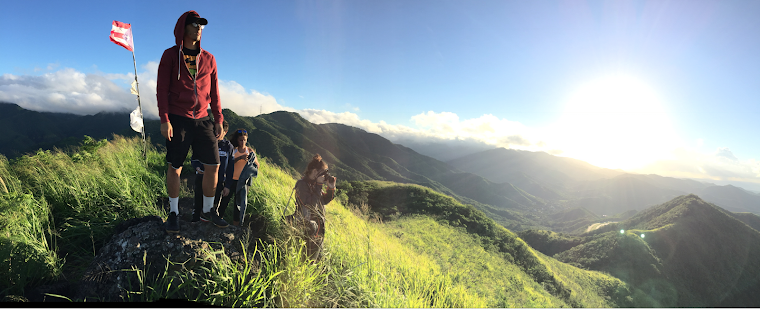 |
| Autobiography Image |
In the Clouds

Salinas, Puerto Rico
Sunday, October 25, 2015
Creative Patterns In The Reading
Monday, October 19, 2015
Journal Reflection
This semester I am taking
this class with Dr. Cynthia Pittmann. The class name is Journey in Literature.
As part of the class assignment, we had to make a journal (notebook), in which
we write our personal experiences and thoughts. We were supposed to keep a
travel journal during 3 months, writing 5 entries each week, with a total of 40. The journal is not
a typical diary, we had to follow some rules given to us by our professor from the book Writing Down the Bones: Freeing the Writer Within By Natalie Goldberg. We were meant to follow these
rules, which were called "The Anti-Rules"; these are, keep your hand
moving, don't cross out, don't worry about spelling, punctuation or grammar,
lose control, don't think, don't get logical, go for the jugular (difficult
emotions). Honestly when I first heard, I thought it was something very weird.
That first day I start writing and in my mind I said, “How I start? About what
topic I want to write?” I continue writing and I start cross out some
misspelled words. Also I was very carefully with the spelling and punctuations.
From the beginning I was failing with almost all the rules. I need to do not
get logical, do not cross out, do not worry about spelling and punctuations.
Honestly that first day was a totally mess. The next days I put in my mind that
I can follow the rules. Through the weeks I put more and more effort to all my
entries. Each day I felt that my skills with the anti rules are improving. At
the finals entries honestly, I felt that I was not writing. I felt that my hand
are moving apart of my mind. I think that finally I get to the jugular, the
hardest part. I finally master the anti-rules.
In the same journal the
professor assign to the entire class to also write a Life Compass. We were
supposed to write 2 of them each week, with a total of 12 at the final. This Life Compass it's
very similar to a normal compass, but instead of North, South, East and West we
have S, E, M and P; each letter means spiritual, mental, emotional and
physical, respectively. At each letter we need to score with a scale of 1 to 3
representing how we felt in that moment and in what place we were. Also we had
to write a few sentences explaining why we took this score. I was writing the
compass about for 3 months and I giving different sores for each letter. When I
finish all of them, I took the time to watch them and reflect on them. I saw
that my lowers scores were days that I was in college, I had a lot of work to
do, or had exams. But when I was in my home, when I had took some break to
chill we my friends, or simply I was doing what I like, my scores got high.
Both exercises
help me to find some thoughts or ideas that were deep inside me. Also helps me
to improve my English vocabulary and my fluency. I challenge you to try it too.
I hope that helps, as it did to me.Sunday, October 4, 2015
The Transformative Magic of Travel
Judith Fein is an award-winning travel writer, speaker and
videographer who lives to leave. She is the author of the acclaimed book, Life
is a trip: The Transformative Magic of Travel. With her photojournalist
husband Paul Ross, she travels the world, learning about how other people live,
love, laugh, worship, eat, celebrate.
In Life
is a Trip Judith Fein takes readers on l4 exotic journeys where she learns
from other cultures new and transformative approaches to family discord, death,
success, fear, faith, forgiveness and overcoming trauma.
 |
| Book |
In the chapter 8 of her book,
she wrote about her trip to Guatemala. In this trip she was surprise with the
Mayan Culture and their gods. Being a spiritual seeker, Fein makes a point of
connecting with healers, wise and holy persons, those who seem to have some
deeper connection than most to enlightenment. If not in person, she finds the
experience that is more intense than the every day. In my opinion this experience we new cultures
helps people to realize and think about the life. The next year, I am planing
go to Cusco, Perú and I'm so excited to know other culture. I think that
cross-cultural experiences and activities involve an exchange of ideas about
people's identity.
"The difference between being a tourist and a traveler is that
a traveler is open to unplanned experience and doesn't have her nose stuck in a
guidebook, tracking down famous sites. She ventures out from behind glass
windows (in hotels and touring buses) and meets people. She connects. The
difference between a traveler and a travel journalist is that the latter is
always searching for stories. But it occurred to me that any traveler can
travel like a journalist--looking for cues and clues, diving into new cultures,
and coming home with great stories and new ways of responding to life."
Subscribe to:
Posts (Atom)
